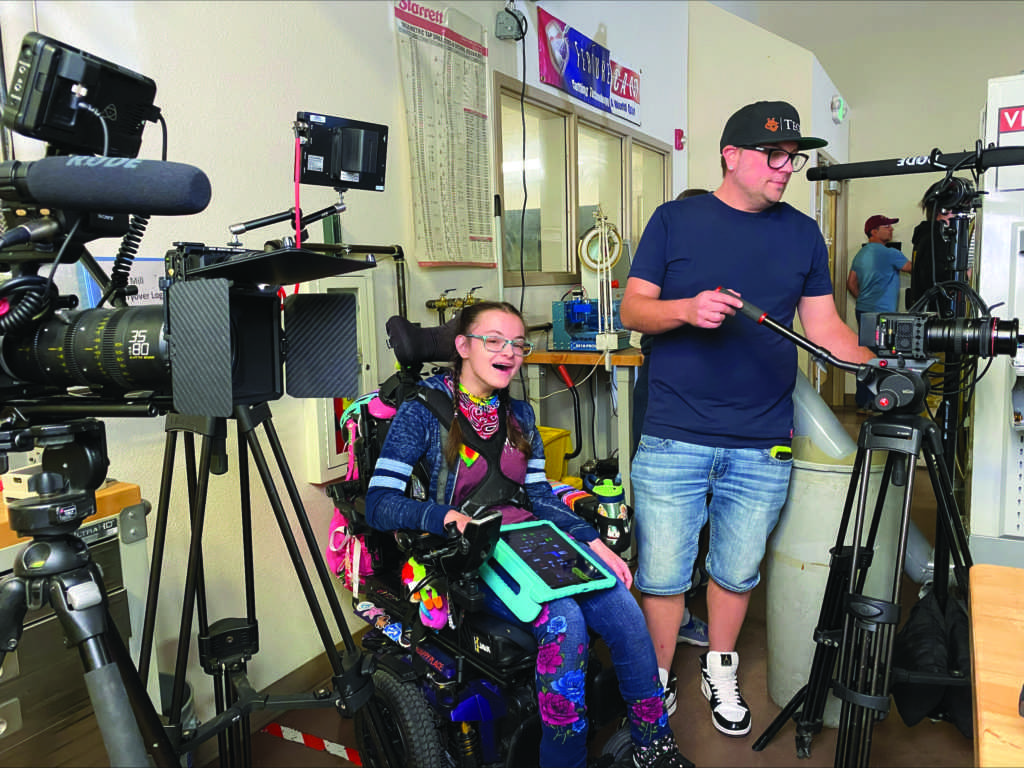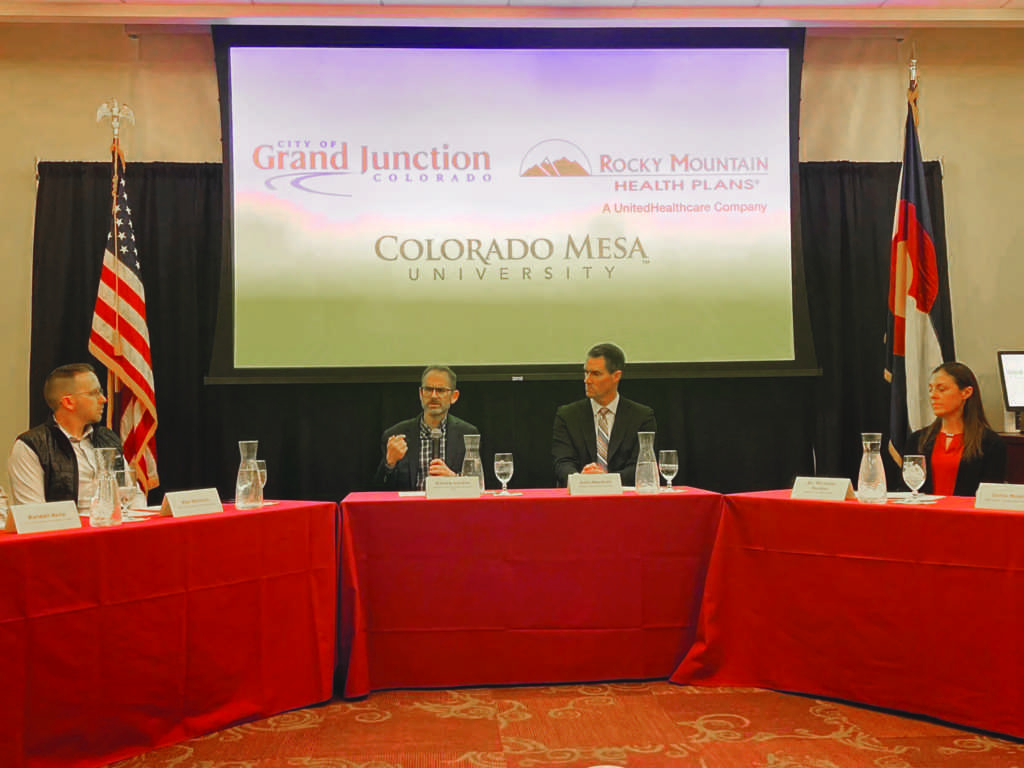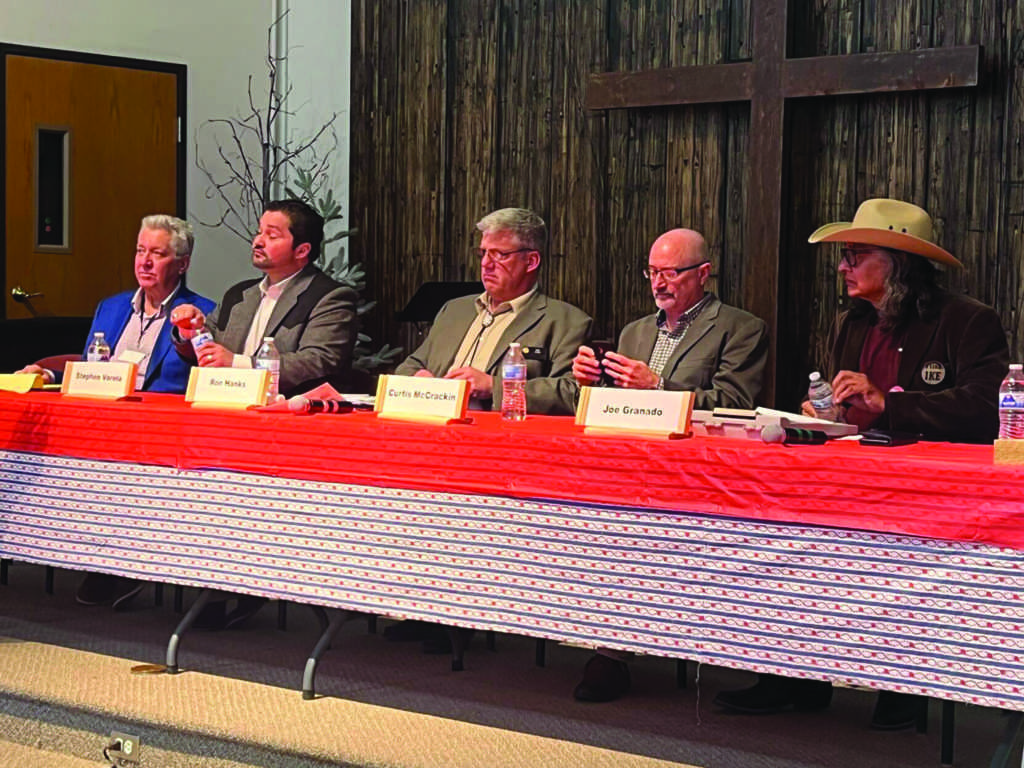“Someone You Love: The HPV Epidemic” is a documentary about five women whose lives have been changed by the Human Papillomavirus (HPV). HPV can lead to very serious cancers both in men and women. Cervical cancer is the most common of these, with a range of 12,000 women diagnosed in the United States.
[media-credit name=”Mesa County Library” align=”alignleft” width=”250″] [/media-credit]
[/media-credit]
The movie shares the women’s struggle, stories and experiences. The movie event was presented at the Mesa County Library on Oct. 18. It was hosted by cancer committees from St. Mary’s Hospital, Community Hospital and Mesa County Public Health. The movie was an hour and 20 minutes long and ended with a discussion panel. There was little turn-out, but those in attendance said the film was still very engaging.
“In order to meet our accreditation we give out questionnaires (at the movie event) and kind of see what has been learned in an event like this. We give out education material, but do people learn stuff?” Kathryn Tarman, M.D. at Community Hospital Oncology said. “Does it change their perception? Does change their behavior?”
This is the first time that the screening has been put on as a collaboration. St. Mary’s has done some outreach programs and Community Hospital has done them in the past as well.
“I am hoping this is the first of many,” Tarman said. “This is one of the best things we can do for cancer prevention.”
Laura Campell, a family practice doctor at Juniper Family Medicine, also discussed the HPV vaccine.
“I spend most of my time, trying to convince people to get the HPV vaccine. I think the big thing is de-stigmatizing the entire idea of the vaccine. The first thing people hear about is that it’s a sexually transmitted, so there’s an automatic backpedal on that,” Campell said. “This is something that we are lucky enough to know, that there’s a virus that causes this and we have a vaccine that can prevent this.”
HPV is very common. Most sexually active men and women will get at least one type of HPV in their lives. HPV usually goes away on its own. People can still get the HPV virus without being sexually active or if they have only one partner.
It’s not obvious if someone has the virus and many people who have the virus aren’t aware because they show no signs or symptoms. There is no treatment for the HPV infection. It’s recommended that females vaccinate between the ages of 11 and 12 and up to the age of 26. Men are encouraged to vaccinate between the ages of 11 and 12 and up to 21, but if they are older than 21, they would need to discuss the matter with a health provider.
“Sex happens whether we want to talk about it or not, and just because you give somebody the HPV vaccine does not mean we are encouraging them to have sex,” Campell said.
Boys and girls have the option to be vaccinated at nine years old, but it’s not because they are having sex that young; it’s because HPV is an epidemic. Parents are told it’s better to know their child is safe when they do become the age to start having sex.
“At Mesa County Public Health we just treat it as we are running down that same list of regular vaccines,” Katie Goddeyne, information and communications manager at Mesa County Public Health, said. “I think we are really trying to de-stigmatize it that way and just work it in and say ‘Okay ABC let’s get them done and knocked off the list.”
Centers for Disease Control (CDC) recommends that 11 and 12-year-old females and males get a two-dose HPV vaccine. There should be a six month spacing between the first and second dose.
Screening tests can find abnormal cells so they can be treated before turning into cancer. The Papanicolaou (Pap) test looks for changes in cells on the cervix that could possibly turn into cancer and the HPV test looks for the virus that causes the cells to change.
HPV can be very scary for students to contemplate, and getting vaccinated is highly recommended by healthcare professionals. For more information, contact your health-care provider or call one of the many physicians and specialists in the Grand Valley to learn more about HPV.














